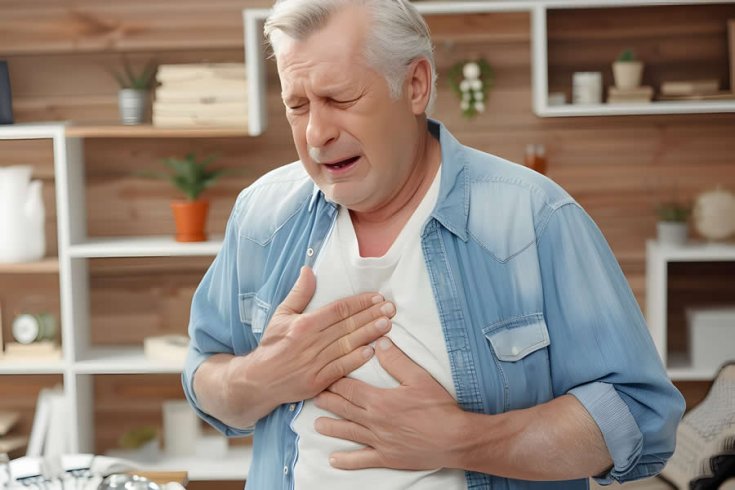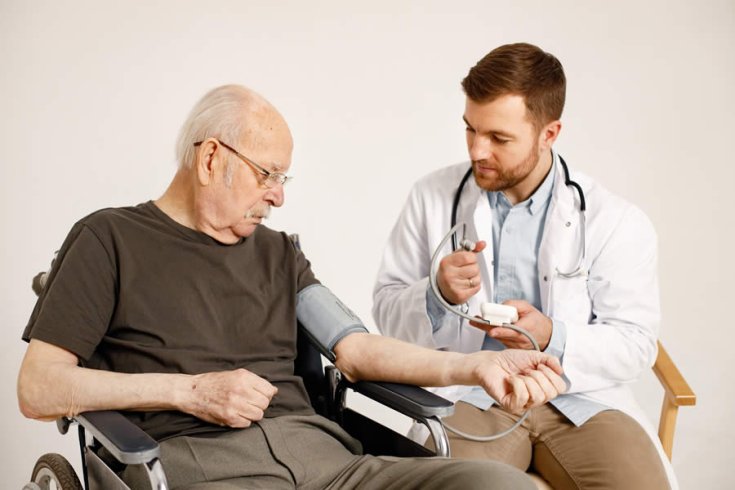Chest pain can stop you in your tracks. It can feel sharp, tight, or heavy. Some people brush it off as stress or indigestion. Others head straight to the emergency room. Knowing the difference matters, and understanding what your body is trying to tell you can save your life. At Capitol Cardiology Associates, our goal is to help you recognize when chest pain signals something serious and what steps you should take right away. Keep reading to find out what every heart doctor wants their patients to know when chest pain strikes.
Recognize What Chest Pain Can Mean
Chest pain doesn’t always start as a dramatic, movie-scene clutch of the chest. It can begin as mild pressure, aching, or discomfort that spreads to your jaw, back, shoulder, or arm. Some describe it as a squeezing or fullness that won’t go away. Cardiac-related chest pain, known as angina, happens when blood flow to the heart muscle is reduced, and it can occur from plaque buildup in the arteries. The restricted flow forces your heart to work harder to get the oxygen it needs. The result is pain or tightness that comes on with activity and improves with rest. However, chest pain can also have other causes. Muscle strain, acid reflux, lung issues, or anxiety can trigger similar sensations. Pain linked to your heart tends to feel heavy or pressure-like, and it might be accompanied by shortness of breath, dizziness, nausea, or cold sweats. If you’re unsure, err on the side of caution. Cardiologists would rather evaluate chest pain that turns out to be harmless than miss one that warns of a heart attack.
When to Get Help
If chest pain lasts more than a few minutes, starts suddenly, or spreads to your arm, neck, or jaw, call 911 right away. Do not try to drive yourself to the hospital. Pain that comes on with physical effort, strong emotion, or right after eating could signal a heart problem. Watch for warning signs like:
- Pressure or squeezing in the chest
- Shortness of breath
- Sweating or clammy skin
- Nausea or lightheadedness
- Pain spreading to the arm, jaw, or back
Don’t ignore chest pain just because it eases up. Many people feel brief or occasional pain before a serious heart problem. Seeking care right away lets your medical team check your heart rhythm, oxygen, and specific enzymes that can show hidden injury. Your heart doctor will use tests like an EKG, echocardiogram, or stress test to look for signs of reduced blood flow or structural problems. If your cardiologist suspects blocked arteries, further imaging, like a coronary angiogram, may be ordered to pinpoint the cause.
What Happens After You’re Evaluated
Once doctors know you’re stable, the focus turns to finding out what caused the pain. Your test results might not show a heart attack, but they can still point to the early stages of coronary artery disease. That means your arteries are starting to narrow, even though your heart is still healthy. This is the best time to make a few changes that support it. Your care team may recommend eating more whole foods, staying active, and keeping your blood pressure and cholesterol in a healthy range. Sometimes medication is also needed to ease the strain on your heart and lower the risk of future problems. If tests show a significant blockage, your doctor might suggest a procedure. A stent can open the artery, or bypass surgery can create a new route for blood to flow around it. These interventions restore circulation and relieve chest pain by addressing the root problem. Even if your chest pain turns out to be non-cardiac, that doesn’t mean it should be ignored. Acid reflux, lung inflammation, or musculoskeletal strain still deserve attention. A cardiologist in Largo, MD can help rule out cardiac concerns and guide you toward the right specialist if needed. The main takeaway is that chest pain isn’t something to self-diagnose. It’s a signal that something needs attention, whether that’s your heart, lungs, or digestive system.
How to Protect Your Heart Before Trouble Starts
Preventing chest pain starts with taking care of your cardiovascular system long before symptoms show up. Know your important health numbers, including blood pressure, cholesterol, blood sugar, and weight. Make time for doctor visits, especially if you have a family history of heart or metabolic issues. What you eat matters just as much as your test results, so fill your plate with fruits, vegetables, lean protein, and whole grains. Cut back on processed foods, salt, and added sugar. Regular movement keeps your heart strong and helps manage weight, easing pressure on your circulation. Managing stress is just as important. Constant tension can raise blood pressure and inflammation, both of which harm the arteries. Deep breathing, stretching, walking, or spending time in nature can calm the body and lower stress hormones. If you smoke, quitting is one of the most powerful decisions you can make for your heart. Tobacco damages the lining of your arteries, accelerates plaque buildup, and increases clot risk. Pay attention when your body speaks up. If you feel drained or have chest tightness while doing your usual routine, that could mean your heart needs help. Don’t wait it out. Checking in with your cardiologist makes it easier to spot trouble early and get ahead of it.
Are You Concerned About Chest Pain?
Chest pain is one of the most important signals your body can send. While not every case points to a heart attack, every case deserves attention. Acting quickly gives your care team the chance to intervene early and protect your long-term health. At Capitol Cardiology Associates, our physicians specialize in diagnosing and treating cardiovascular conditions. Whether your symptoms are new or recurring, we’ll provide the testing, guidance, and ongoing care you need to protect your heart.






